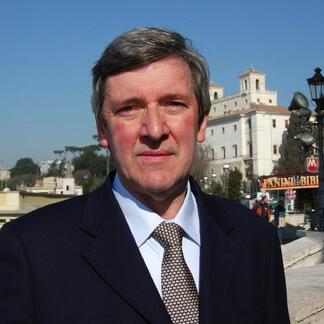Voices

Gerard O’Connell is America’s Vatican correspondent and author of The Election of Pope Francis: An Inside Story of the Conclave That Changed History. He has been covering the Vatican since 1985.
FaithVatican Dispatch
The coronavirus has become Italy's most major crisis since World War II.
FaithVatican Dispatch
Pope Francis will continue his all-out efforts to eliminate the triple form of abuse by clergy in the church—the abuse of conscience, of power, of sex—and to ensure that a safe environment is established in all church institutions worldwide for children and young people.
FaithVatican Dispatch
The pope appeared to be in good health and appeared for a moment at the window at the end of the Angelus to greet the small gathering in St. Peter's Square “in real time.”
FaithVatican Dispatch
These changes correspond to Italian government restrictions on large public gatherings to limit transmission of coronavirus.
Politics & SocietyVatican Dispatch
The normal services of the health and hygiene sector of the Vatican city-state were “temporarily suspended” following yesterday’s positive test for Covid-19 on one patient in order “to sanitize the areas.”
Politics & SocietyVatican Dispatch
In a small indication of how rapidly the contagion is affecting Italy, by the time the Vatican spokesman sent his communique to the media, the number of victims had risen dramatically—the total number of cases rising to 3,858 and deaths to 148.
FaithVatican Dispatch
It was the pope’s first public appearance in four days.
FaithVatican Dispatch
For the second day in a row, Pope Francis, who is suffering from a cold, suspended his public audiences scheduled for today, Feb. 28.
FaithVatican Dispatch
The pope’s spokesman said “his other meetings proceed regularly.” His words were intended to downplay the concern that his condition might be in any way serious.
Politics & SocietyNews
Pope Francis urges bishops of the Mediterranean to promote peace and counteract populist hate speech
The pope said that discourses from some leaders of new forms of populism bring to mind "speeches that sowed fear and then hate in the decade of the 1930s."










